World Geography And Politics Daily News | 17 Jun 2023

Views (144)
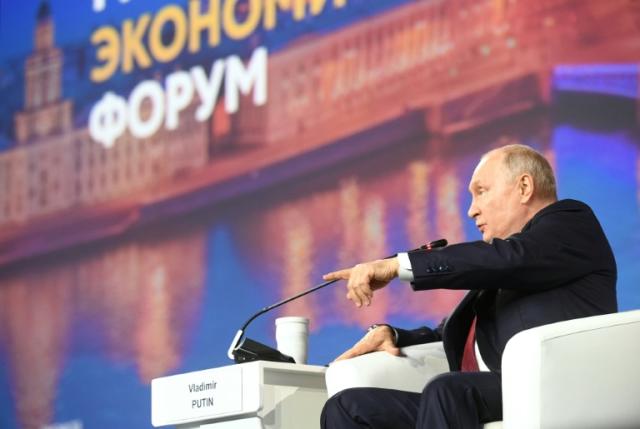
Blinken: US has ‘no reason to adjust’ nuclear posture over Russia’s weapons transfer to Belarus
Secretary of State Antony Blinken on Friday said the Biden administration is closely monitoring Russia’s claims that it’s stored a tactical nuclear weapon in Belarus, but Washington has “no reason to adjust” its own nuclear posture. Russian President Vladimir Putin earlier in the day said Moscow sent the first of several nuclear weapons to its ally Belarus, with the rest to…
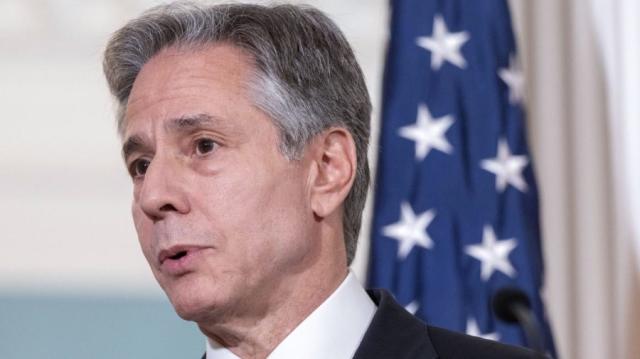
Secretary of State Antony Blinken on Friday said the Biden administration is closely monitoring Russia’s claims that it’s stored a tactical nuclear weapon in Belarus, but Washington has “no reason to adjust” its own nuclear posture.
Blinken said he has seen Putin’s recent comments, and the United States will “continue to monitor the situation very closely and very carefully.”
“We have no reason to adjust our own nuclear posture,” Blinken said at a State Department press conference with Singapore Foreign Affairs Minister Vivian Balakrishnan. “We don’t see any indications that Russia is preparing to use a nuclear weapon.”
He added Washington is still committed to defending “every inch” of NATO territory.
“As for Belarus itself, this is just another example of [Belarus President Alexander] Lukashenko making irresponsible, provocative choices to cede control of Belarus’s sovereignty against the will of the Belarusian people,” he said.
Ukraine’s Ambassador to the United Kingdom Vadym Prystaiko, however, said Putin’s remarks should be taken “very, very seriously,” CNN reported.
“I believe that [Putin] was blackmailing all of us: Ukrainians, first of all, but then Europeans and Americans and all our partners around the globe,” Prystaiko said.
Moscow is transferring short-range tactical nuclear weapons, which are not as damaging as the nuclear warheads attached to ballistic missiles but are capable of immense destruction, into Belarus.
Russia moving the nuclear weapons back into Belarus is the first such transfer for the Kremlin since the collapse of the Soviet Union in the early 1990s. At the time, Belarus was one of four former Soviet Union members, including Ukraine, that transferred nuclear weapons over to Russia.
Putin, who has repeatedly threatened the use of nuclear weapons in its war with Ukraine, also on Friday denigrated NATO and warned there is a “serious danger of further drawing” the alliance into the war by providing Ukraine weapons.
US imposes visa restrictions on Uganda officials after anti-LGBTQ law
WASHINGTON (Reuters) -The United States has imposed visa restrictions on Uganda officials after the African nation passed an anti-LGBTQ law that was condemned by many countries and the United Nations, the U.S. State Department said on Friday. The law, considered one of the harshest in the world, was enacted in May and carries the death penalty for "aggravated homosexuality," an offence that includes transmitting HIV through gay sex. U.S. President Joe Biden had threatened aid cuts and other sanc

By Kanishka Singh
WASHINGTON (Reuters) -The United States has imposed visa restrictions on Uganda officials after the African nation passed an anti-LGBTQ law that was condemned by many countries and the United Nations, the U.S. State Department said on Friday.
The law, considered one of the harshest in the world, was enacted in May and carries the death penalty for "aggravated homosexuality," an offence that includes transmitting HIV through gay sex. It drew immediate rebukes from Western governments and put in jeopardy some of the billions of dollars in foreign aid the country receives each year.
U.S. President Joe Biden had threatened aid cuts and other sanctions, while Secretary of State Antony Blinken said last month the government would consider visa restrictions against Ugandan officials.
The State Department statement on Friday did not mention any names or even the number of officials that would be hit with the visa restriction but said the U.S. would hold accountable those who are responsible for abusing human rights in Uganda, "including those of LGBTQI+ persons."
The State Department also updated its Uganda travel guidance for U.S. citizens to highlight the risk that LGBTQI+ persons could be prosecuted and subjected to life imprisonment or the death penalty based on provisions in the law, it said.
"The United States strongly supports the Ugandan people and remains committed to advancing respect for human rights and fundamental freedoms in Uganda and globally," the State Department said.
The law also imposes a life sentence for same-sex intercourse and a 20-year sentence for promotion of homosexuality.
Firms including media and non-governmental organizations that knowingly promote LGBTQ activity will also incur harsh fines, the law says.
Homosexuality was already illegal in the conservative and highly religious East African country, and homosexuals faced ostracism and harassment by security forces.
(Reporting by Kanishka Singh in Washington; editing by Susan Heavey and Bill Berkrot)
Putin says Russia has sent first nuclear weapons to Belarus
Russian President Vladimir Putin on Friday said Russia has sent the first nuclear weapons to Belarus as part of a plan to deploy tactical nuclear bombs in the country bordering Ukraine. Speaking at the St. Petersburg International Economic Forum, Putin said the rest of the nuclear weapons would be delivered by the end of the…
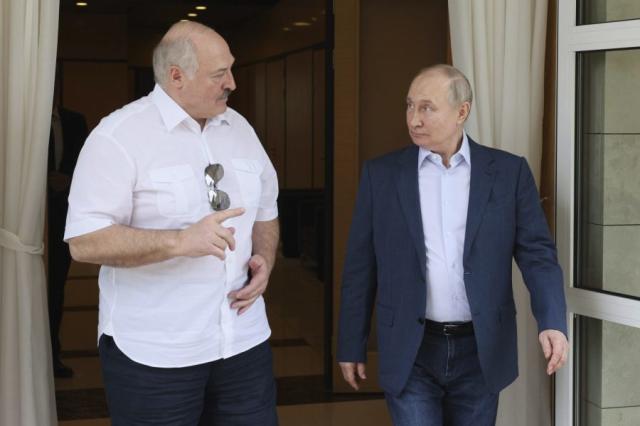
Russian President Vladimir Putin on Friday said Russia has sent the first nuclear weapons to Belarus as part of a plan to deploy tactical nuclear bombs in the country bordering Ukraine.
“This is a deterrence measure [against] all those who think about Russia and its strategic defeat,” he said in response to a question about the use of nuclear weapons in war.
The Russian leader’s comments follow claims from Belarusian President Alexander Lukashenko this week that his nation received the first part of the “bombs and missiles from Russia.”
After the Soviet Union collapsed in the early 1990s, Belarus was one of four former Soviet Union members, including Ukraine, that transferred nuclear weapons over to Russia.
Moving the nuclear weapons back into Belarus marks the first nuclear weapon transfer for Russia since the collapse of the Soviet Union.
The weapons Moscow is transferring are short-range tactical nuclear weapons, which have a shorter range and lower yield than nuclear warheads fitted to ballistic missiles — but are still capable of immense damage far exceeding the bombs dropped over Hiroshima, Japan, in World War II.
The U.S. also deploys tactical nuclear weapons abroad, including about 100 nuclear gravity bombs stationed in Europe.
On Friday, Putin, who has repeatedly threatened the use of nuclear weapons during the Ukraine war, castigated the U.S. as the only country to drop nuclear weapons on another country and deflected questions about his own nuclear weapons strategy.
When pressed about the transfer decision, Putin on Friday said he didn’t want to “frighten the whole world” and maintained the nuclear weapons would only be used in self-defense.
“These measures can be used only if there’s a threat to Russian statehood,” he said. “All the means in our hands will be used against it.”
Vladimir Putin tells West to ‘go to hell’ on nuclear arms reduction
Vladimir Putin told the West to “go to hell” on nuclear arms reduction as he confirmed that atomic weapons have already been deployed to Belarus.
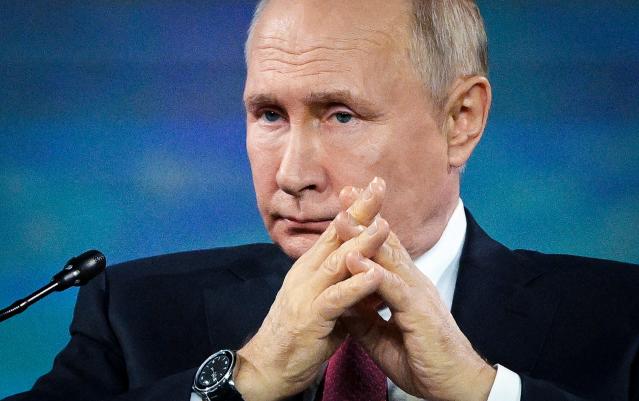
“Go to hell,” he said, to applause from visiting delegates.
The unusually foul-mouthed remarks came during a three-hour speech at the event once dubbed “Russia’s Davos”, which this year featured strongmen tearing apart tennis balls among a host of bizarre vignettes.
Putin said the “first part” of a nuclear weapon had been delivered to Belarus, with the process set to be complete by summer. It will mark the first time Moscow has deployed nuclear weapons outside its borders since the fall of the Soviet Union.
Russia is “theoretically” ready to fire an atomic weapon if its territorial integrity is threatened, Putin said.
Ukraine’s western allies, including Britain, are training pilots on the fifth-generation fighter jets, with delivery to the battlefield possible within six months.
Guests at the forum, which once included Western business elites, were mainly drawn from Russia’s few remaining allies, including Cuba and Syria. The guest of honour was Algeria’s president and the host was Dimitri Simes, an ethnic Russian US citizen who has become a cheerleader for the Kremlin after previously advising Richard Nixon on foreign affairs.
In the initial portion of Putin’s 75-minute speech, several visitors were seen with their eyes closed, apparently nodding off. Everyone had been asked to turn their phones off to reduce the risk of drone strikes.
Among several efforts to entertain or impress delegates was a show from burly paratroopers dressed in striped t-shirts and berets.
One man, after a protracted struggle, tore a tennis ball in half with his bare hands before bending an iron bar over his head.
Not all the stunts were as successful. Herman Gref, head of Russia’s largest bank Sberbank, failed to start a new Lada that he was supposed to test drive in front of rows of cameras.
During the question-and-answer session, Putin said Ukraine had “no chance of success” in its counter-offensive.
“Their losses are very high, even more than one-to-10 compared to the Russian army losses,” he said.
He said that Ukraine would soon run out of weapons it manufactures within its borders, and would have to rely entirely on Western donations.
“Everything with which they fight and everything that they use is brought in from the outside,” he said. “You can’t fight for long like that.”
Meanwhile, it has emerged that the Kremlin will give cash bonuses of up to £2,800 to soldiers for destroying Ukraine’s Western weapon systems.
Russia’s ministry of defence said that the super-sized bonuses come on top of smaller cash bonuses that it has already handed out to 10,000 soldiers since its full-scale invasion of Ukraine.
“Payments are currently being made to Russian servicemen who on military operations destroyed Leopard tanks, as well as armoured fighting vehicles made in the US and other Nato countries,” the Russian ministry of defence said.
It said that a Russian soldier would be given £470 for destroying an armoured vehicle, £935 for destroying a tank and £2,808 for destroying a Himars rocket system.
Cameroon's Ngonnso: 'My fight to bring our sacred stolen statue home
The Ngonnso statue was looted from Cameroon in 1902 and has been on display in a Berlin museum.
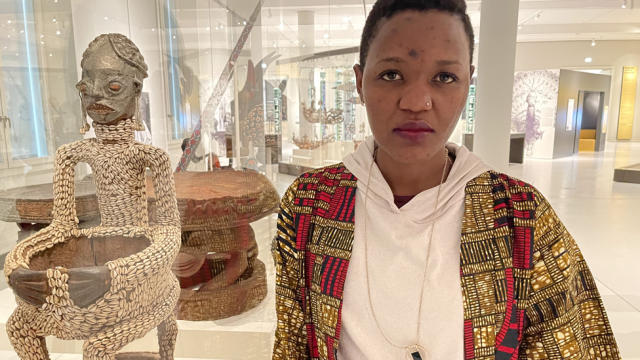
When Sylvie Vernyuy Njobati saw the sacred statue of her Nso people for the first time, she was shaking.
"It was emotional because I was seeing... our founder... our mother locked up in some glass container. And for 120 years, she's been yelling out. She needs to be back home," she told the BBC's The Comb podcast.
The centuries-old statue - known as the Ngonnso - was on display in a museum in the German capital, Berlin, thousands of miles away from "home" in Cameroon.
It had been in Europe since it had been taken by a German colonialist at the beginning of the last century.
In 2018, Ms Njobati made a promise to her grandfather - to bring back the Ngonnso, which embodies the history and identity of her people.
Three years later she was face-to-face with Ngonnso, a wooden carving less than a metre in height and covered in sea shells. But the effigy was in a glass cabinet.
Her journey to try and fulfil the pledge to her grandfather would take her across continents and ultimately change her life.
It was also a quest that would serve as an inspiration for others working for the return of artefacts looted in the colonial era.
Ms Njobati's mission to bring back the stolen statue began after she moved from Cameroon's English-speaking North-West region to attend university in a French-speaking area of the country,where sharp divisions remain between those areas which were part of the British and French empires.
She says the move was a difficult one and she struggled to assimilate. She felt that she did not fit in and yet she was in her own country - the fracture that she experienced was defined by colonialism.
Ms Njobati said she began to examine who she really was, after stripping "off all the colonial cultures, all the colonial legacies that I have inherited".
Faced with her own identity struggle, Ms Njobati returned home to seek advice from her grandfather, who had experienced his own identity crisis.
It turned out that he regretted not embracing his Nso heritage and choosing to become a Presbyterian pastor rather than a community leader.
"I saw someone also who feels disconnected from his own identity and his own culture."
Her grandfather not only expressed sadness about what he had lost but also what the Nso had lost both culturally and materially, including the Ngonnso.
According to Nso tradition, Ngonnso was the founder of their kingdom, which dates back to the 14th Century.
Following her death, her statue took on great significance. It was seen as a cultural cornerstone for the Nso.
In 1902, the Ngonnso was taken by German colonial officer Kurt Von Pavel and donated to Berlin's Ethnological Museum.
Despite various requests to have the statue returned, the Ngonnso has been in Germany ever since. Ms Njobati recalls her grandfather expressing his desire to see the statute returned to Cameroon.
"He clearly mentioned to me that he wishes that Ngonnso should come back, so that he can see Ngonnso at least before passing on."
It was then that Ms Njobati made her promise to bring back the statue - not only for her grandfather but also as a way to reconnect to her Nso heritage.
She began by researching all she could about the Ngonnso and the previous unsuccessful efforts to have her returned. Over the years, various letters had been sent to the German authorities.
"The Nso people didn't really know whom they were talking to. They would just sign letters to anyone in a position to help," she said.
Ms Njobati decided to take a different approach.
"I thought to myself: 'Restitution is part of a bigger conversation, confronting the colonial past.' How about we have these conversations as loud as these crimes were committed?"
She started with what she called a "grassroots awareness campaign". She held meetings in community halls and churches and met people one-on-one.
She also marshalled the power of the hashtag #BringbackNgonnso online.
Through Twitter, Ms Njobati was able to make contact with the Ethnological Museum where the statue was held.
In 2021, when she learnt that the Ngonnso was to be displayed at a new museum, the Humboldt Forum, Ms Njobati flew to Berlin to protest outside, together with a number of other activists.
It was during this visit that Ms Njobati was able to see the Ngonnso statue for the first time.
By this time the campaign to bring back the Ngonnso was gathering steam both online and offline.
Award-winning Nigerian writer Chimamanda Ngozi Adiche was among those speaking out about the Ngonnso, and the plight of the Nso.
Ms Njobati's activism was paying off.
A meeting was arranged with her and Hermann Parzinger, president of The Prussian Cultural Heritage Foundation, a body that oversees 19 museums and collections including the Humboldt Forum.
During that meeting Ms Njobati handed him a restitution request.
That conversation was especially difficult for Ms Njobati as she had learnt that same day that her grandfather had passed away without seeing the Ngonnso returned.
"When I received the call from my mother, my heart sank into my stomach. I was like, not now, we are this close, just hold on. It just got me really, really broken."
Despite struggling to come to terms with the loss of her grandfather, Ms Njobati felt compelled to continue her campaign.
In the months to come, things began to slowly shift.
For years, the museum had insisted that the Ngonnso was their legal property but now they issued a statement acknowledging that it was taken under violent circumstances.
It was a step in the right direction.
Ms Njobati was then told that a decision about the Ngonnso was imminent. She flew back to Germany and learnt that after 120 years, the statue was to be finally returned.
For Ms Njobati, the decision was an emotionally charged moment.
"I was like: 'Finally, this is happening. Not just for me, for the Nso people, for Cameroon, and for all of Africa.' I cried."
Looking back, Ms Njobati says her interactions with the German authorities helped shape her campaign.
"It's a tough discussion for the people we now call the perpetrators, because also these people didn't commit the crimes themselves. And sometimes, we can be very hard on them.
"I made up my mind that I'm going to approach people as human beings first, and then as the institutions they represent second. And I think that worked really well."
Although a date is yet to be set, plans are now under way for the Ngonnso to be returned.
Ms Njobati sees this as a personal victory and also a wider one for her country and the continent.
"I think that this is a big win for Cameroon as a whole, because this also lends a hand to other communities that are seeking restitution."
Ms Njobati says that the campaign to bring the Ngonnso home has not only helped her fulfil her promise to her grandfather but it has also brought her closer to her Nso heritage.
"I feel very fulfilled. I'm able to even find closure with the fact that I lost my grandfather. I feel at peace with myself."
Putin proclaims end of 'ugly neo-colonialism'
President Vladimir Putin on Friday proclaimed the end of "neo-colonialism" in international politics and praised Russia's economic strategy following its ruptured ties with the West."The ugly neo-colonial system of international relations has ceased to exist, while the multi-polar global order is strengthening," Putin said.
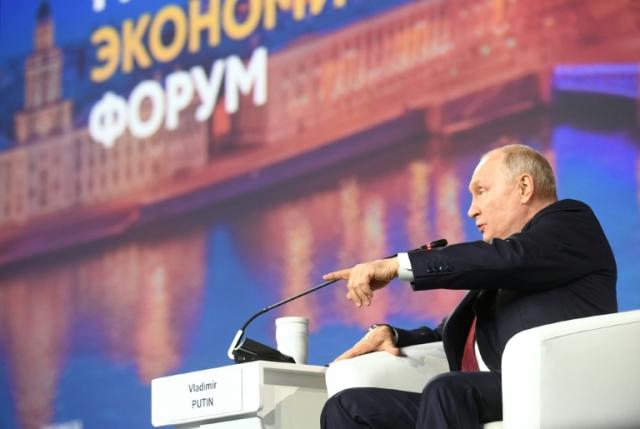
President Vladimir Putin on Friday proclaimed the end of "neo-colonialism" in international politics and praised Russia's economic strategy following its ruptured ties with the West.
The Russian leader addressed an annual economic forum in Saint Petersburg, a shadow of its former self since Putin sent troops to Ukraine in February 2022 and the West pummelled Russia with unprecedented sanctions.
"The ugly neo-colonial system of international relations has ceased to exist, while the multi-polar global order is strengthening," Putin said.
"This is inevitable."
Putin has repeatedly denounced the dominance of the United States in international politics and sought to present Moscow's offensive in Ukraine as a battle against the decadent West.
He accused Western countries of refusing dialogue with Russia and suggested that the West would like to hold talks in the future.
"And we will see at what point and what we can talk with them about," Putin said.
Speaking about Russia's economy, he admitted that the second quarter of last year had been "the most difficult" as the West punished Russia with unprecedented sanctions.
"Today we can confidently say: the strategy chosen at the time by both the state and Russian business worked," he added.
He also claimed that around half of Russians who had left the country after the start of the offensive in Ukraine had already come back.
"This process is continuing, but if someone wants to live in another place -- suit yourself," Putin said.
Many Russians now lived in the United Arab Emirates as well as Armenia, Azerbaijan, Kazakhstan and Uzbekistan, he added.
"I don't see anything wrong here, let people live where they see fit."
The slogan of this year's forum was "The sovereign development is the foundation of a just world", the Kremlin said.
AFP and representatives of other countries the Kremlin deems "unfriendly" were not accredited to cover the forum.
bur/jj
0 Likes
